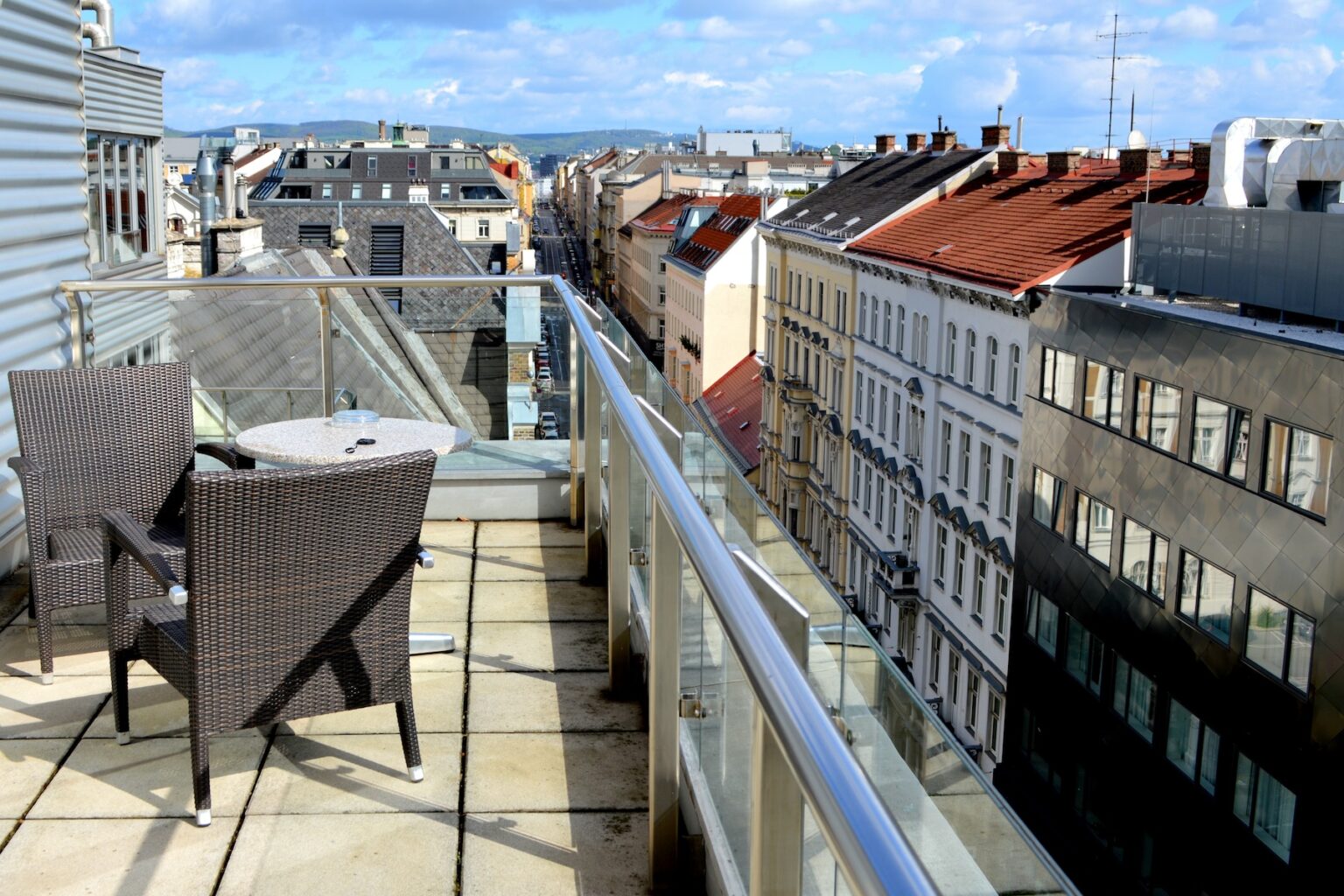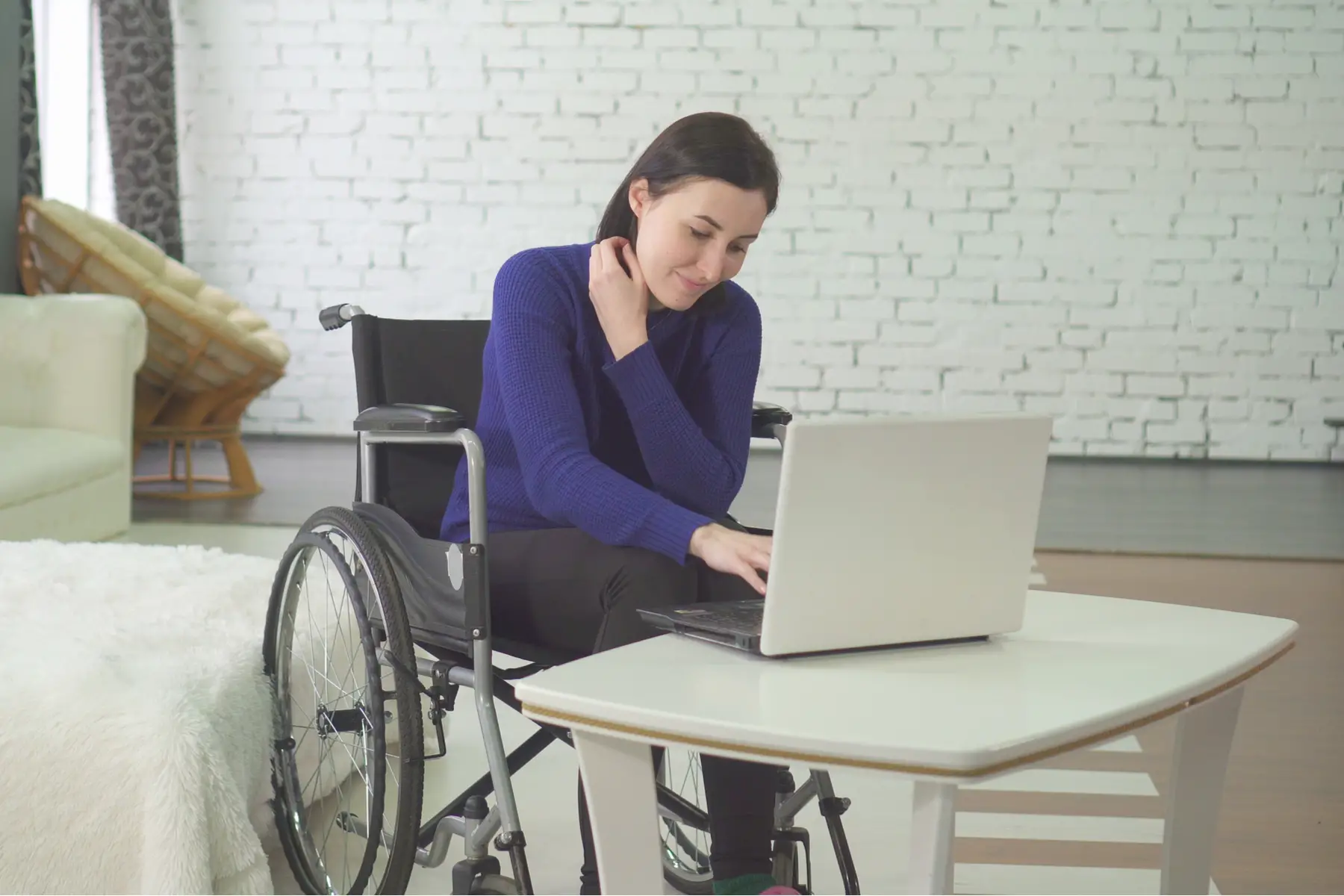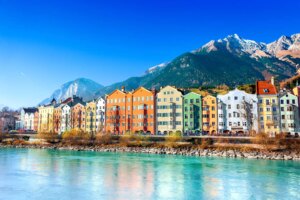When looking into renting a property in Austria, you have a few options. Generally, there are apartments – which usually come unfurnished in Austria – serviced apartments or student accommodation. When renting, you may also want to look into things like contents insurance and how to use a homestay network.
If you haven’t quite decided on whether to buy or rent a property yet, you may want to read our guide to buying real estate in Austria. There are also plenty of sustainable housing options to explore that might pique your interest.
To help you get started, though, this guide explains everything you need to know about renting in Austria, including the following information:
- Renting in Austria
- Popular places to rent in Austria
- Types of property to rent in Austria
- Finding a place to rent in Austria
- How to rent a property in Austria
- Rental costs in Austria
- Social housing in Austria
- Tenancy contracts in Austria
- Utilities and telecommunications in Austria
- Moving in and moving out in Austria
- Useful resources
tempoFLAT
If you need a place to stay in Austria, try tempoFLAT for short-term furnished rentals. They have a range of high-quality apartments across major Austrian cities tailored to the expat market. So, whether you're moving to Salzberg or Vienna, find your next home with tempoFLAT.
Renting in Austria
Typically, Austria isn’t known for its cheap rental market and mortgages aren’t the right option for everybody, either. That said, there are affordable rentals to be found; particularly if you’ve been living in Austria for five years and are eligible for social housing. But more on that later. Renting a property in Austria is a fairly easy process as an expat. Essentially, most things are done through a real estate agent who will fulfill your neighborhood requirements, transport, budget, and so on.
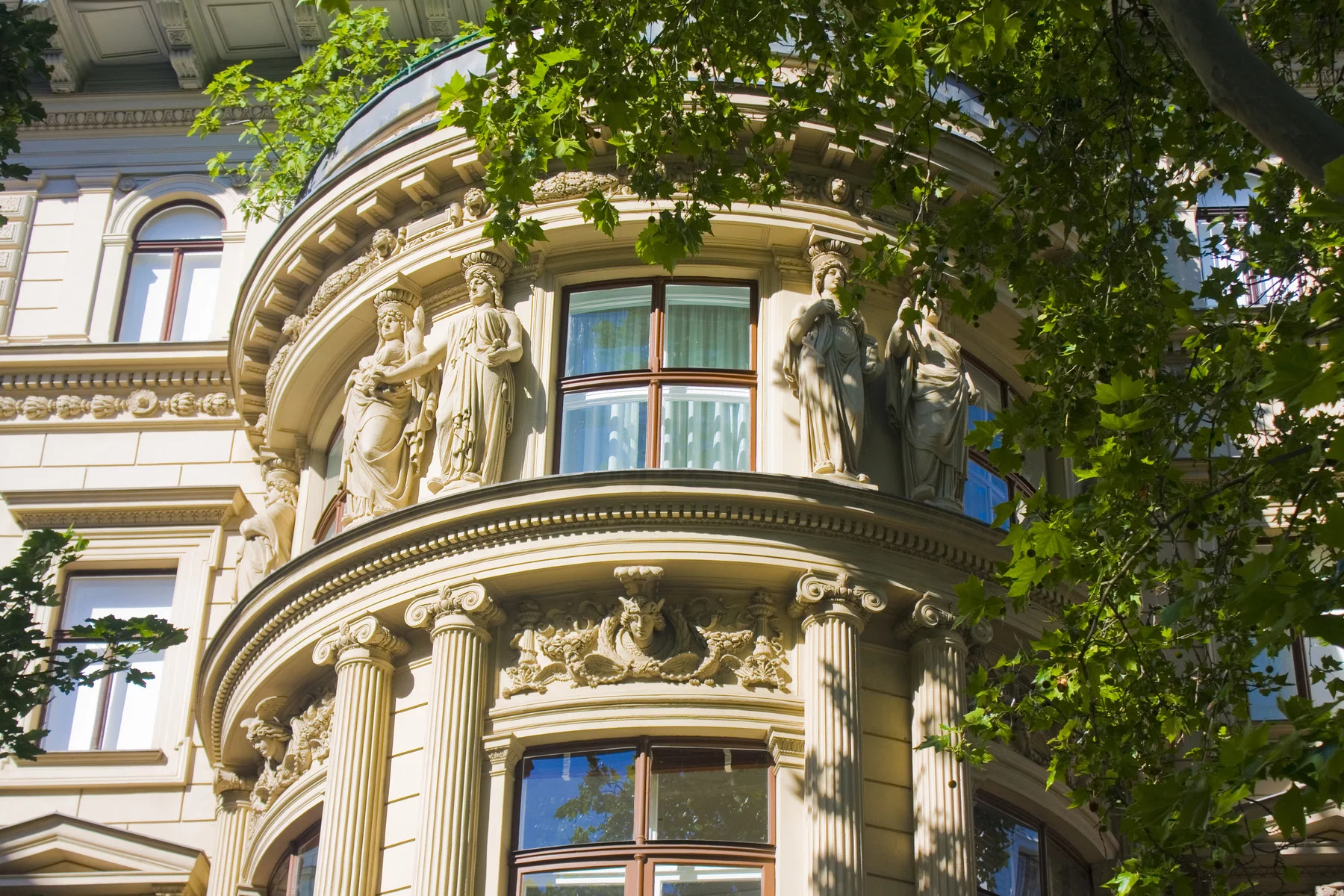
In Austria, the majority of apartments are rented unfurnished and will only really come with the bare essentials such as hot water and heating.
Popular places to rent in Austria
Austria is an extremely beautiful country with many appealing destinations to call home. That said, the majority of expats are generally drawn to the major cities which offer better work opportunities and a more vibrant social life. Here are some of the most popular cities to live in.
Vienna
Beautiful buildings (inside and out) aren’t the only things that make Austria’s capital, Vienna, a popular place to rent an apartment. In 2019, the city was named the world’s most livable city for the tenth time. As well as great culture and leisure facilities, Vienna has a great public transport network, world-class healthcare, and a low crime rate. It is also the most progressive city in Austria, with people from all walks of life living there.
Salzburg
This stunning UNESCO World Heritage site offers a wealth of beautiful Baroque architecture and an eco-friendly transport system, which makes it one of the greenest cities in Austria.
It is also the birthplace of Mozart, the prolific 18th-century composer, and famous as the filming location of The Sound of Music. Additionally, the city hosts a series of exciting events every year, including Mozart Week, the Salzburg Festival, and Winterfest. For this reason, Salzburg is a great city for creatives and artistic types.
Graz
The second-largest of the cities in Austria is home to over 440,000 residents. Because the city also has so many great universities, it is popular with students. Its location towards the south of Austria also means it has a more temperate climate. Nevertheless, expats will find that the biggest drawback of Graz is that it is less international and touristy than places like Vienna.
Linz
Located right on the river, Linz is the country’s third-biggest urban area and home to 203,000 people. Although there is great public transport, the city is very walkable. Notably, living in Linz is far easier if you speak German, even though there are many international companies there. Along with all of this, the city offers good education and healthcare and access to the stunning natural surrounds of Upper Austria.
Want to explore more options? Then read our more in-depth Guide on the best places to live in Austria.
Types of property to rent in Austria
Typically, apartments in Austria are pretty much always rented empty. You will likely only get hot water and heating with your tenancy agreement. If you prefer to have a fully furnished home, you might want to look into finding a serviced apartment. However, bear in mind that these are likely to cost considerably more, especially in the larger cities.
As many of Austria’s cities are architectural wonders, it’s no surprise that you’ll find flats with great character features to them. However, there are also a number of modern, newly built flats as well. Student accommodation is also plentiful given the large number of sought-after universities throughout the country. Typically, these are shared apartments.

Leases in Austria are typically three years long. Therefore, if you are looking to live somewhere for less than that, you will need to find a specifically short-term rental. And don’t bank on being able to find a regular apartment with a shorter lease, as these are not at all common. Additionally, there are two main types of rental contracts in Austria – primary leasehold and sublet.
In essence, the average living space in Austria is getting bigger. For instance, in 2018, this had risen to 100.1 square meters up from 99.3 in 2016. After all, it’s always nice to have a bit of extra space.
Finding a place to rent in Austria
Of course, you will want to make your search for a temporary home in Austria as easy as possible. With this in mind, here are some options.
Property agents
The handy online portal Housing Agent provides the names and contact details of local real estate agents in Austria. It also allows you to search by city and filter properties with and without furniture. The site also provides language preferences so you can choose a local property agent that speaks English if you prefer.
There are certain sites that allow you to find apartments directly through the owners rather than incur the hefty fees of agencies. Look for Provisionsfrei (agent-free) and see what you come up with. These can be hard to find, however, but Privatimmobilien, Jobwohnen, and Willhaben are worth looking at.
Agencies specializing in expat rentals
- Crown Consulting – helps with rental property searches and the registration of residence permits and relocation
- Immototal – a European real estate agency located in Vienna, which specializes in rentals of luxury real estate (flats, apartments, homes, houses, plots of land) throughout the country
- Knight Frank – an international letting agent with a presence in Austria
Online property portals
Many expat house-hunters in Austria will find it easier to search for properties online. These property portals will show you a wide range of different homes, whether you’re after a long-term or short-term rental. They’ll also give you a good idea of how the market is at any given time. Online property portals in Austria include:
Student housing
Essentially, on-campus living is less common at Austrian universities. Typically, students live in a hall of residence or in private accommodation. Also, Austrian universities don’t automatically allocate a room when you enroll. Instead, you need to find a place to live yourself. The OeAD-Housing Office provides fully furnished housing options. These are available during the summer months as well as the academic year.
Flat shares
Wohngemeinschaften (private shared flats) are probably the most popular form of accommodation for students. Ordinarily, students will share a kitchen and bathroom and have a room to themselves. Typically, depending on where you study, the average rent will be between €250 to €450 per month. You can search for shared flats on JobWohnen.
How to rent a property in Austria
Essentially, the process of renting a property in Austria is fairly similar to what you would experience in other European countries.
Renting through a property agency
In Austria, property viewings should be free and no fees should be charged. After you have found the right property and agreed on the rental amount with either the estate agent or landlord, you can sign the lease. You will be asked for your proof of identity, Austrian visa, and either proof of employment or a student ID. After you sign the lease, you will need to transfer the deposit. Typically, this is three months’ rent, however, it can sometimes be as much as six.
Rental costs in Austria
It is not common to negotiate rental costs for apartments in Austria. The landlord’s listed price is usually what they will be expecting. Furthermore, the rental market in Austria is extremely strong. This means that there are usually a host of renters behind you in the queue for great apartments.
Monthly rent
Currently, the national average rent is around €400 per month across the board. In Vienna, the rent for the average one-room apartment starts at around €500 and then rises up to approximately €2,000. There is a similar range in other big cities in Austria, too. You will find the lowest monthly rents are in Carinthia for as little as €313 monthly.

Occasionally, landlords will include bills in the rental price, however, this is not the norm and will be stated in the listing if they do. If you fail to pay your rent, repercussions will depend on your individual rental agreement. However, typically they will have grounds to terminate your rental contract and force you to move out.
Rental deposit
In Austria, your Kaution (rental deposit) is usually 3 months’ rent. That said, this can be as high as 6 months’ rent depending on how upmarket the properties you are looking at are.
Agency and administration fees
The agency commission is a one-off payment to the real estate agent for a rental agreement. Unfortunately, this amount can be between one and three times the gross monthly rent plus 20% VAT tax. Typically, two months is the norm.
Help with costs
In Austria, you can access unemployment benefits (or Arbeitslosengeld) if you lose your job. Notstandshilfe (emergency assistance) is income tested. In this case, 95% of the unemployment benefit is paid if the unemployment benefit is €909.42 a month or less. If the benefit is greater than €909.42 a month, then 92% to 95% is paid. However, this varies depending on the income and the number of dependents of the unemployed person.
Due to the global COVID-19 pandemic, Austria has made amendments to the rights of landlords in the case of rental arrears. Now, landlords should provide grace periods if tenants cannot pay the rent. The reason for being unable to pay must be in direct relation to the COVID-19 pandemic. These measures are only temporary and will return to normal in January 2021.
Social housing in Austria
Amazingly, 60% of Vienna’s residents live in rent-controlled flats. Vienna has a high-functioning social housing system with thoughtful design elements such as swimming pools, gardens, and childcare facilities.
The city partially owns 440,000 social homes with the remainder by non-profit co-operatives subsidized by the state. Interestingly, several different income level tiers all live together in these council flats. They were purposely designed this way to mix lower-paid residents with middle-income renters and help with integration. The income limit to access them is set to more than €3,200 per month for a single person. Exceptionally, tenants can also remain in their flats even if their incomes rise in excess of the limit.
The average rent ranges from between €300 and €750 and the sizes vary with anything from studios to four-room apartments. To be eligible – if you are not an Austrian citizen – you will need to have legal residence in Austria for five years.
Tenancy contracts in Austria
The Mietrechtsgesetz (Austrian tenancy law) has some pretty tight protection for tenants. Essentially, the tenancy is almost always for three-year periods and apartments are typically unfurnished. If you have an inkling that you may not stay in the property for the full length of the contract, then make sure you have a clause built-in to allow you to break the contract early. Alternatively, you can opt for a shared flat where you aren’t under the same constraints.
Tenant rights and obligations
In Austria, it is legal for a tenant to sublet their room. However, the number of occupants must not exceed what is stated in the contract. Even if your landlord doesn’t love the idea, you are legally allowed to do this. In essence, the three-year rental contract is there to safeguard the tenant. For instance, landlords cannot raise the rent during the period.
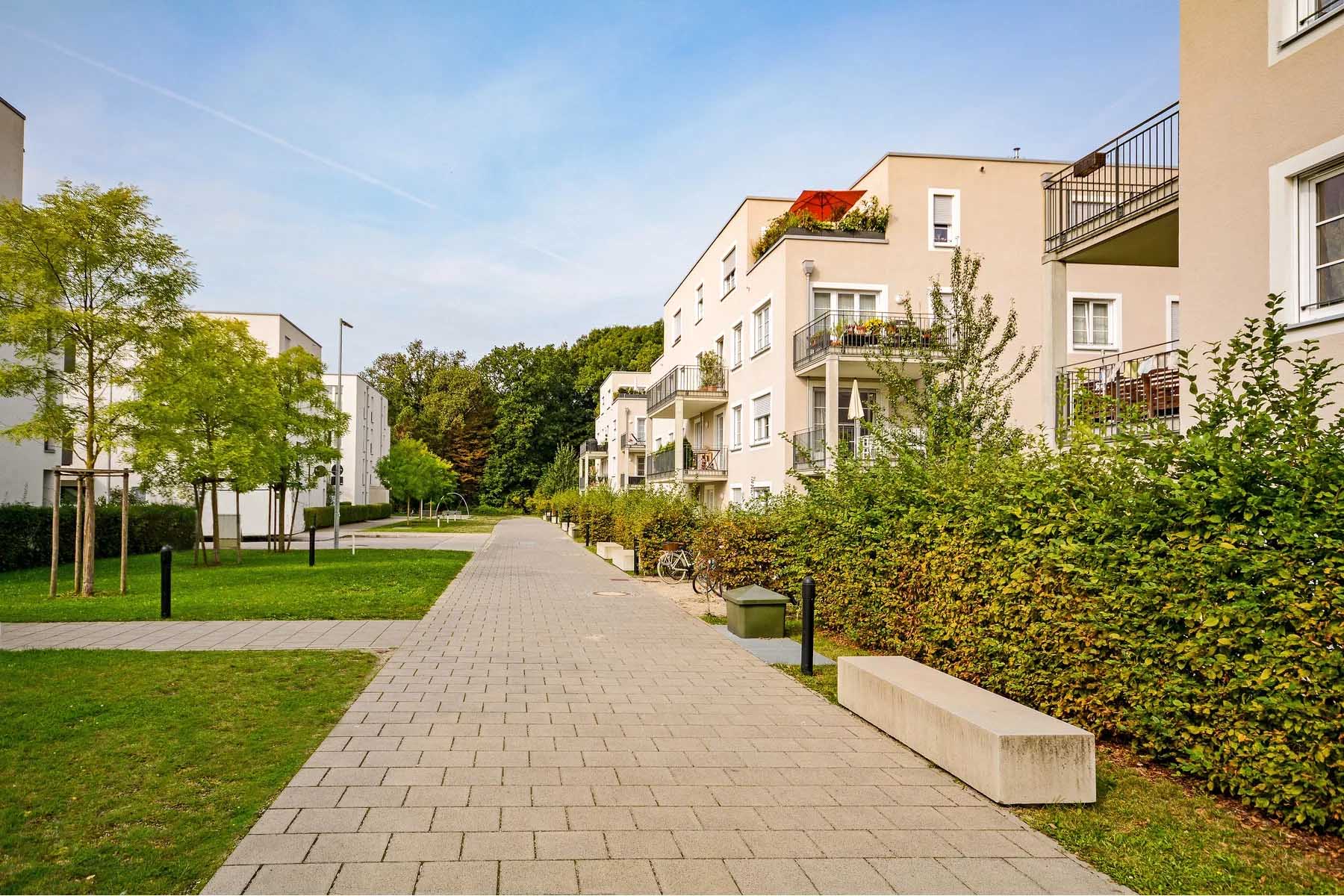
Sometimes, a landlord will already have the utilities connected and they will be included in your monthly payments. Your landlord should provide you with information on these costs beforehand. Make sure you clarify what you are paying for before signing a contract. If utilities aren’t included in the rent, you will be able to sign up with the provider of your choice. In serviced apartments, utilities should be included within your rental payments for short-term leases.
Although complicated, tenants’ rights follow roughly the same rules as other European countries. Tenants sign a lease, and both the tenant and the landlord are bound by that document, except in extenuating circumstances.
Landlord rights and obligations for rent in Austria
In Austria, by law, an apartment must include functioning central heating, hot water, a kitchen sink, stove top, and a washroom. However, there are exceptions to this rule in the old ‘category C’ apartments that have shared bathroom facilities. Sometimes, landlords may ask you to take out contents insurance. They are within their rights to do so.
Your landlord can’t kick you out without reason. However, they may terminate your lease under extenuating circumstances. Typically, this is because you have failed to pay the rent or the property has been damaged or you are disturbing the peace of the neighborhood.
Otherwise, the particular rules in your apartment will be as per your individual rental agreement. While these are usually standard, make sure you read through them to ensure that you know what you are getting into. The Tenants Association Vienna is a good resource for any rental questions.
Where to go in the event of a rent dispute in Austria
The Vienna-based Tenants Assistance (Mieterhilfe) offers free consultations on legal issues related to housing in Vienna. The arbitration board provides a free service to help tenants and landlords enforce their rights.
The Austrian tenants and property owners association provides counseling on problems related to housing. This includes issues for tenants and flat owners. You need to be a member to access these services, however, non-members may pay for a personal consultation.
The Austrian bar association (Österreichische Rechtsanwaltskammer) is a good place to find a lawyer in your area that specializes in tenancy law.
Utilities and telecommunications in Austria
Before you can set up utilities and telecommunications in your Austria home, you will first need to open an Austrian bank account and set up a phone number. Generally, you should start the activation process for electricity and gas two weeks ahead of your move-in date. The electricity and/or gas will need to be deactivated for the previous tenant and reactivated for you. If it is a new build, you may need to get it connected to the distribution network.

The power distribution network is owned and operated by each municipal network provider. Your landlord should give you the details of which provider services your home. They will be responsible for getting the electricity into your home and the overall power grid. Also, they serve any power outages. However, in Austria, there are also several competing providers and you can choose to go with a cheaper option. Services like Stromliste can help you find the most affordable provider. Then, you will need to open an account with your chosen electricity supplier. Essentially, you will need to provide them with information about your apartment and its heating and water systems.
In Austria, gas service works the same way and there are several different distributors to choose from. Fortunately, the process for setting up your phone, internet, and television is pretty straightforward.
Moving in and moving out in Austria
After you have signed your rental lease, you will be free to move into the property on the agreed date. Just make sure you have planned for your utilities (as above) at least a week in advance as this may take a day or two to arrange.
Importantly, if you need to move out before your lease ends, you will need to first check the notice clause. Ordinarily, you will need to notify your landlord in writing three months before your intended moving date. If you don’t have a notice clause in your lease, you may need to get an official notice from the court to serve to your landlord.
Your landlord needs to return your deposit immediately after the termination of the tenancy agreement. The landlord is able to deduct money as per your individual contract for things like damages to the property. However, they may not deduct money for ordinary wear and tear. An inventory of the property is also common for furnished apartments.
Tips for renters in Austria
- If any repairs on your property are needed before you move in, make sure to sort these out with the landlord before you sign the contract. Notably, estate agents tend to disappear after you have signed on the dotted line.
- Make sure to check if your property is covered by the Austrian Tenancy Law. Rules like maximum rent and limits to the length of the tenancy are written into the law. Also, this law takes precedence over your rental contract. It is wise to compare this to your rental agreement to see if there are any unfair stipulations by your landlord.
- Don’t forget to check the policy on any important personal requirements you have, such as pets or smoking, before you sign.
- Do a thorough check of the property and take pictures of any damages.
- Make sure you get current safety certificates for anything inside the property such as smoke detectors and gas.
- Ask your landlord to show you the fusebox and walk you through any quirks of the apartment or house so you won’t be stupefied if something goes wrong.
Useful resources
- PD&R Edge – provides details of Vienna’s unique social rented housing program
- Nestpick.com – an international fully furnished rental site with a presence in Austria
